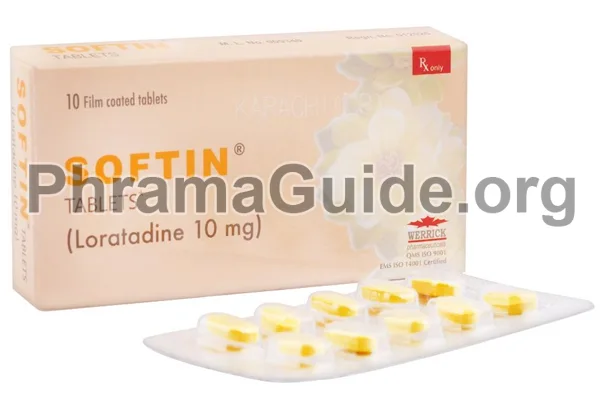Softin is a commonly used antihistamine medication that is available over-the-counter and by prescription to relieve allergy symptoms such as sneezing, runny or itchy nose, itchy or watery eyes, and itching of the throat or nose. It is generally well-tolerated, but like all medications, it can have side effects in some individuals.
Common Side Effects of Softin
- Headache: Some people may experience mild headaches while taking Softin.
- Dry Mouth: Softin can reduce saliva production, leading to a dry mouth or throat.
- Fatigue or Drowsiness: While Softin is considered a non-sedating antihistamine, it may still cause drowsiness in some individuals. However, it is less likely to cause drowsiness compared to older antihistamines like diphenhydramine.
- Stomach Upset: It can occasionally cause stomach discomfort or nausea.
- Nervousness or Excitability: Some people may experience feelings of nervousness or restlessness.
- Skin Rash: Although rare, some individuals may develop a skin rash or hives as a reaction to Softin.
- Allergic Reactions: Severe allergic reactions to Softin, such as difficulty breathing, and swelling of the face, lips, tongue, or throat, are extremely rare but should be reported to a healthcare professional immediately if they occur.
- Other Side Effects: Less common side effects include changes in vision, rapid or irregular heartbeat, and difficulty passing urine. If you experience any unusual or severe side effects while taking Softin, you should seek medical attention.

What is Softin?
Softin is one of the leading brands of Loratadine, manufactured and marketed by Werrick Pharmaceuticals, Pakistan.
Softin : Available Formulations and Strengths
Presently, Softin is available in Tablet and Syrup forms
Softin Tablet : Loratadine 5mg and 10mg strengths.
Softin Syrup : Loratadine 5mg/5ml strength.
Softin-F Tablets : Fexofenadine 60mg, 120mg, and 180mg strengths.
Possible Drug Interactions of Softin
- Central Nervous System Depressants: Softin may enhance the sedative effects of central nervous system depressants like alcohol, sedative-hypnotic medications (e.g., benzodiazepines), and certain sleep aids. This can increase the risk of drowsiness and impaired coordination.
- Ketoconazole and Erythromycin: These antifungal and antibiotic medications can inhibit the metabolism of Softin, leading to increased Softin levels in the blood. This can potentially cause an increase in side effects.
- Rifampin: Rifampin, an antibiotic, can increase the metabolism of Softin, potentially reducing its effectiveness.
- Cimetidine: Cimetidine, used to treat heartburn and ulcers, can also inhibit the metabolism of Softin, leading to increased levels of Loratadine in the body.
- Other Antihistamines: Combining Softin with other antihistamines may lead to an additive effect and increased risk of side effects like drowsiness.
- Grapefruit Juice: Grapefruit juice can interact with Softin and other medications by inhibiting certain enzymes responsible for drug metabolism. This can result in higher levels of Loratadine in the bloodstream.
- Selective Serotonin Reuptake Inhibitors (SSRIs): There is a theoretical risk of an increased risk of serotonin syndrome when Softin is combined with SSRIs, although this interaction is not well-documented.

Leave A Comment